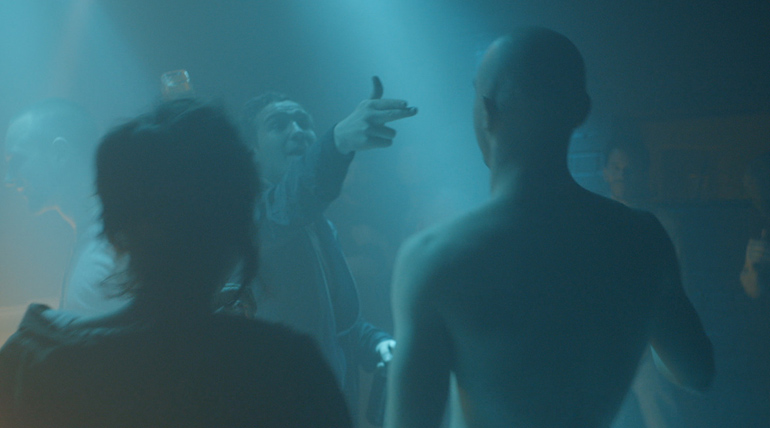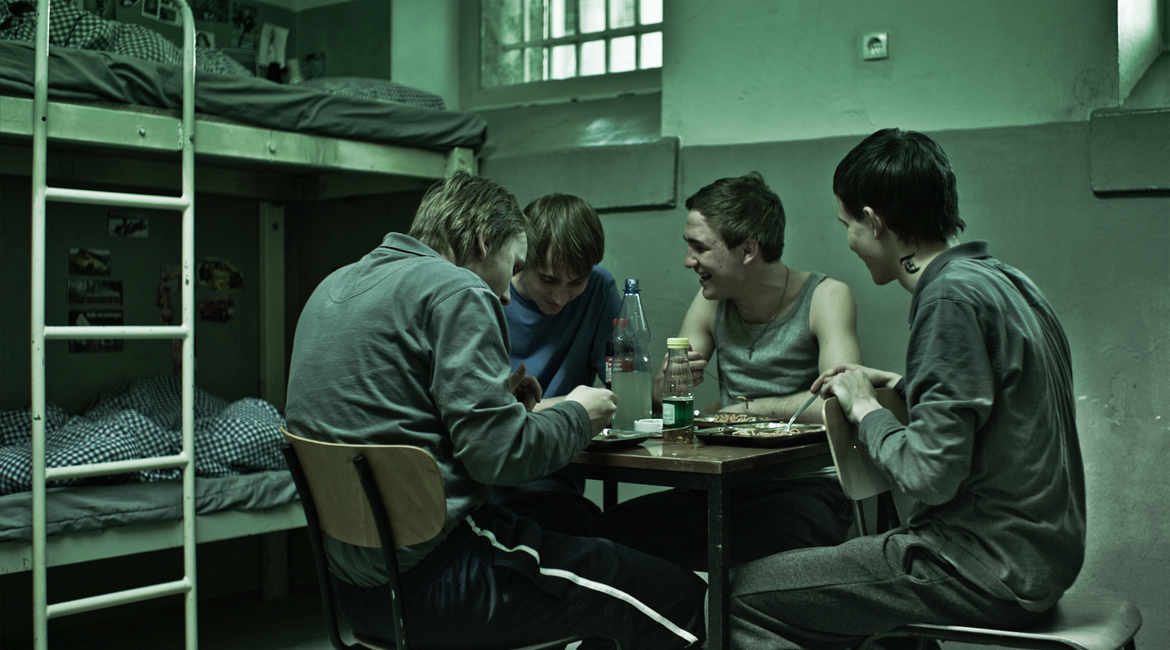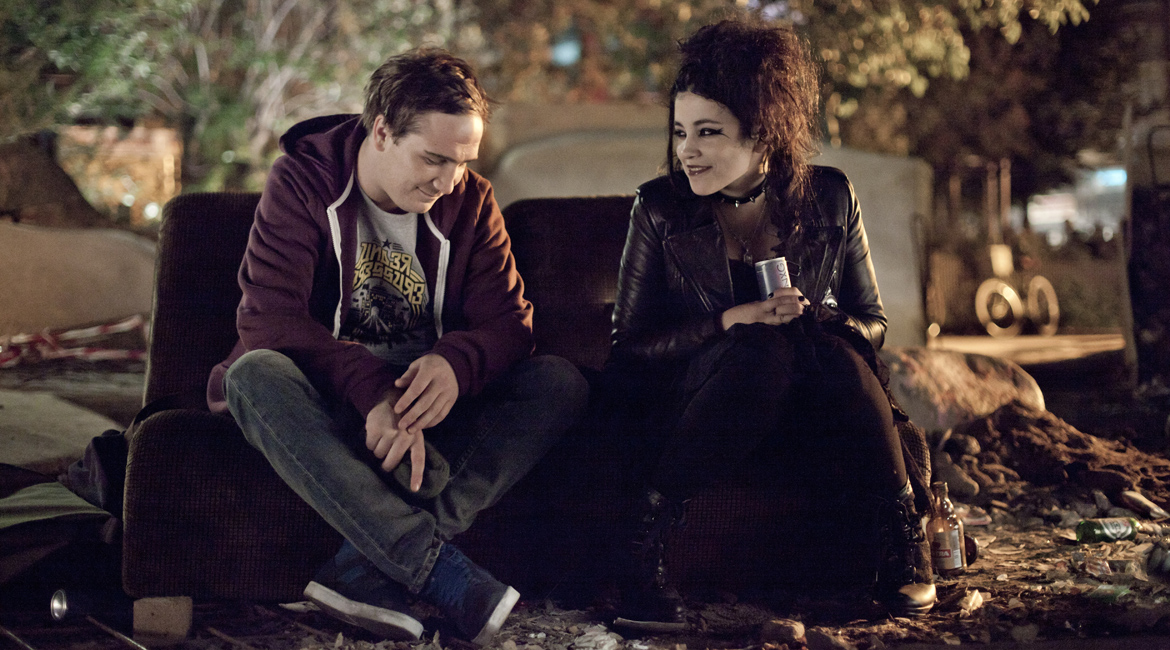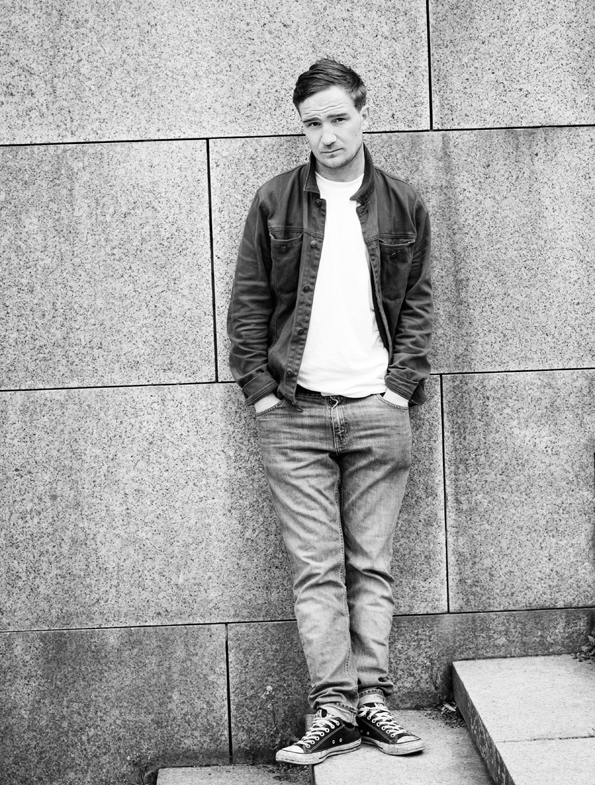A PORTRAIT OF ACTOR FREDERICK LAU
photo © Nadja Klier/photoselection“What kind of a person is Frederick Lau? That can be shown in a flash: simply by watching the moment, at the presentation of the 65th German Film Awards in Berlin, when he was announced as the winner of the prize for Best Actor for his role in VICTORIA. His name is called out, and first he thanks his team along with their director, Sebastian Schipper. But then, instead of going straight on stage as expected in such situations, he rushes over to his competitors, Christian Friedel and Hanno Koffler — also nominated in the category Best Actor — and embraces them. And he does it so quickly that the television cameras are unable to follow him. That’s typical of Frederick Lau. With one sympathetic gesture, he casts aside the director’s instructions and the protocol of the gala award ceremony, just to share his triumph with others and to truly live the moment.
He repeatedly succeeds in this in front of the cameras, as well: from one second to the next, he can seem so hard and then make such a gentle impression. It’s a metamorphosis reminiscent of the young Marlon Brando. Only Frederick Lau comes from the Berlin district of Steglitz, as you can hear as soon as you meet him. He was born there, and he doesn’t think it’s at all unusual that he still lives there today: “I like it there, it’s wonderful. That’s my home,” Frederick Lau says, laughing. “Yes, of course, I do go out quite often with the lads in Neukölln or Kreuzberg. But I need the peace and quiet in Steglitz.”
After premiering in the Berlinale’s Competition in 2014, JACK was sold to 10 territories worldwide and, to date, has opened theatrically in France, Spain and Japan, in addition to the release by Camino Filmverleih in Germany.
The actor has a liking for characters that are broken, outsiders or those with problems. “I have an analogy there: in a bar, I would be more interested in the lonely beer drinker than in the sociable, good-looking man in a suit,” the actor says. “I don’t find normality particularly stimulating. Really good stories are always about something people experience or live through. I enjoy telling the stories of rough, sharp-edged characters. I get more out of that.”

Scene from VICTORIA (photo © Sturla Brandth Grøvlen)
IT’s a man like this that he plays in VICTORIA, a feature film – made in a single take – about a bank robbery after a night partying in Berlin. Two hours and twenty minutes long, the work received six Lolas at this year’s German Film Award ceremony, and it is very important to Frederick Lau — for several reasons.
“German film has incredible potential and we need to get bolder still, to exhaust all its possibilities,” the actor explains. “We can tell many more stories, and very different ones. If people unleash their imagination, in the end something fantastic will emerge from that, something like VICTORIA. I am immensely proud of this film.”
Frederick Lau should know. He is an expert in German film: although a mere 25 years old, he has been involved already in the making of more than 70 film and television productions. And yet his film career began rather by chance. As a nine-year-old boy he responded to a newspaper advert for his first role. A sporty-looking lad was required for a production for children’s television. He got the job. And that’s how it all started.

Scene from PICCO (photo © Markus Eckert)
Frederick Lau has a firm handshake and a muscular, well-trained body. He is not the intellectual artist type. On the contrary, the impression he gives is that of a sportsman. And he would certainly have been talented enough for a career as a professional sportsman. As a teenager he was a Berlin champion, not only in ice hockey but also in judo. “I thought everything to do with sport was terrific. It gave me everything,” Frederick Lau recalls. “Sport was my ‘happy place’. I had ice hockey training every day, and after that I often went to judo as well. And at the weekends there were league games or competitions. It was hard, but the elixir of life as far as I was concerned.”
But then a time came when he was being offered more and more roles, and he had to choose. With a heavy heart, he abandoned his chance to make a career as an ice hockey professional: “If only it were possible, I would like to do both. But that’s unrealistic because of my shooting timetable. It’s a shame, isn’t it, that you always have to make choices in life.”
Well, he made the right choice. His film career is growing in interest and success from year to year. Meanwhile, he is one of the most sought-after actors of his generation, having impressed critics and audiences alike with films like Dennis Gansel’s drama THE WAVE (2008) or Philip Koch’s PICCO (2010). The range of emotions he can show on the big screen is quite astonishing. Not only is he capable of drama, but also of comedy — as demonstrated this year in TRAUMFRAUEN and in Oskar Roehler’s tragicomedy PUNK.
He has given up sport. However, the time as a top sportsman continues to shape his character, even today. He always regarded his success as Berlin ice hockey and judo champion as a team achievement. And he is still a team player to the present day.
“I am a team player, in film as well,” the 25-year-old actor declares. “I work together with my team to achieve success or to create a good product. And I would never manage without them.”
Bettina Aust

Scene from LIFE’S NO PIECE OF CAKE (photo © Riva Film/Georges Pauly)
-

photo © Nadja Klier/photoselection
Agent

